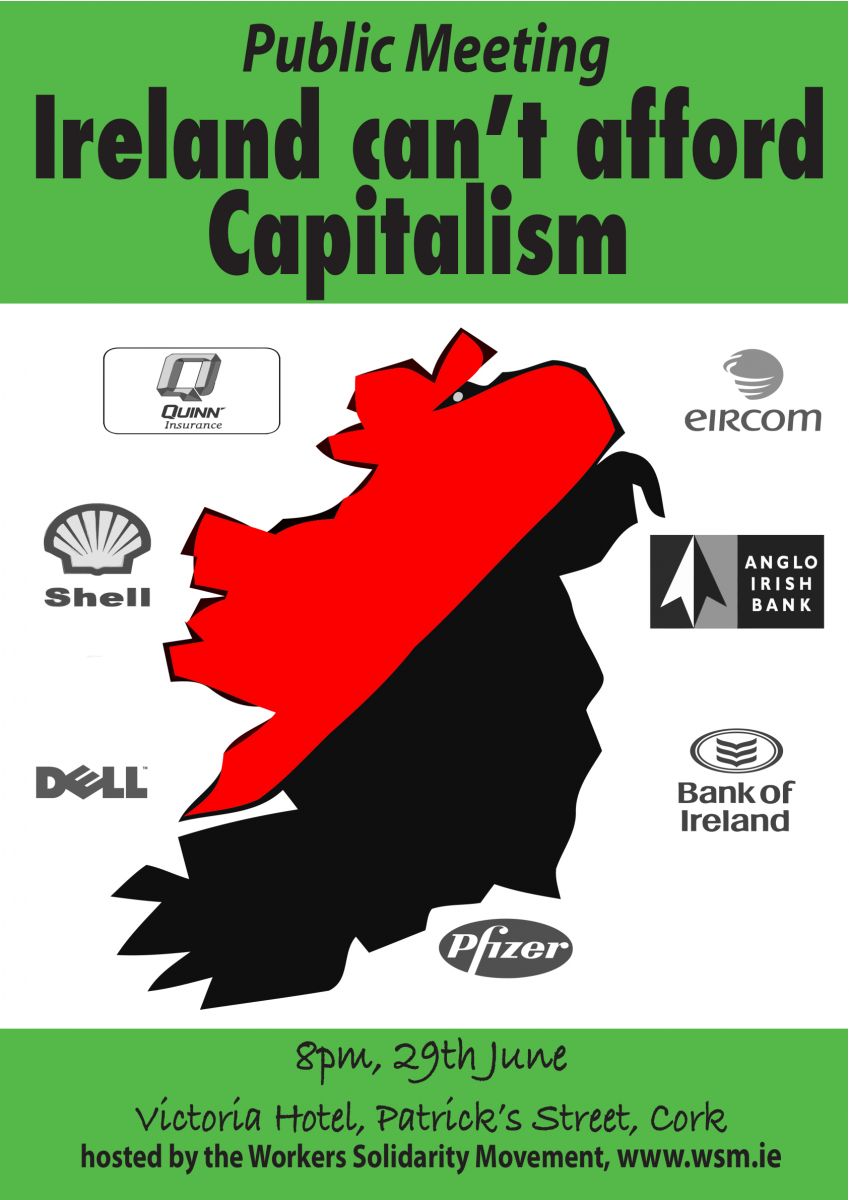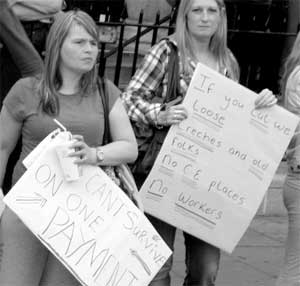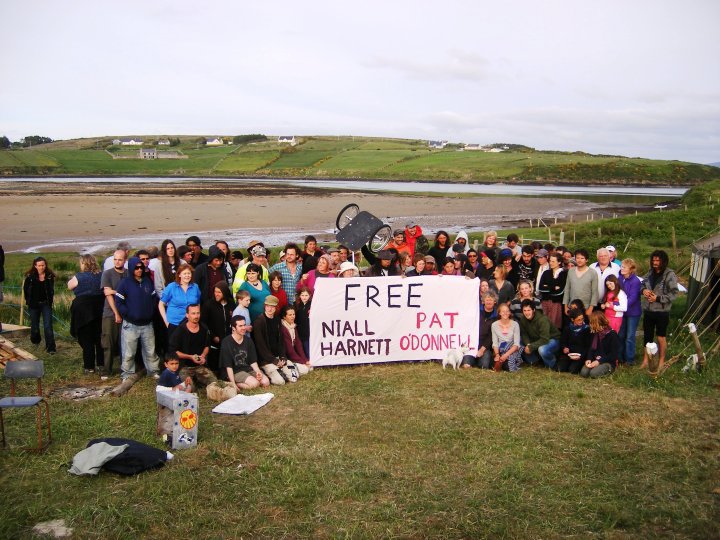Over 30 years of anarchist writing from Ireland listed under hundreds of topics
Cork: Ireland Can't Afford Capitalism - Why We Need A Revolution
 A public talk and discussion will be hosted by the Cork branch of the Workers Solidarity Movement at 8 p.m. on June 29th at the Victoria Hotel, Patrick St., Cork.
A public talk and discussion will be hosted by the Cork branch of the Workers Solidarity Movement at 8 p.m. on June 29th at the Victoria Hotel, Patrick St., Cork.
IBEC dinner protest - Let’s talk about socialism
 A few hundred people took part in a protest last night at the Mansion house in Dublin where the Taoiseach Brian Cowen was going to dinner with the organisation of the domestic section of the capitalist class that instructs him. As various bosses and Cowen went into the venue protected by ranks of Gardai, with the riot squad on standby outside the back entrance of Anglo Irish Bank and mounted police across the road, they were jeered by the crowd with shouts of 'thieves', 'robbers' and 'scum.'
A few hundred people took part in a protest last night at the Mansion house in Dublin where the Taoiseach Brian Cowen was going to dinner with the organisation of the domestic section of the capitalist class that instructs him. As various bosses and Cowen went into the venue protected by ranks of Gardai, with the riot squad on standby outside the back entrance of Anglo Irish Bank and mounted police across the road, they were jeered by the crowd with shouts of 'thieves', 'robbers' and 'scum.'
Rossport Solidarity Weekend Radio Report
O ver the June bank holiday weekend the 5th successive annual Rossport Solidarity camp took place. Over the decade that this campaign as been running, this weekend has become a focal point for activists and the community to get together, have workshops and share in some activities. Radio Solidarity took along a recorder and tried to capture a flavor of the events, and we asked people how come they'd become invovled in this struggle against one of the biggest conglomerates in the World.
ver the June bank holiday weekend the 5th successive annual Rossport Solidarity camp took place. Over the decade that this campaign as been running, this weekend has become a focal point for activists and the community to get together, have workshops and share in some activities. Radio Solidarity took along a recorder and tried to capture a flavor of the events, and we asked people how come they'd become invovled in this struggle against one of the biggest conglomerates in the World.
The Environment
"The environmental crisis we are living through, encompassing unpredictable climate change, resource depletion, pollution and species extinction has primarily been caused by industrial capitalism. The origin of this crisis, and the ways in which the effects have been managed point to a real lack of democracy in society. False solutions to this crisis dominate debate. These include market-based cure-alls, "green" party electoralism, "power of one" style individual action and state regulation and taxation." WSM position paper on the Environment as introduced at November 2007 conference (this paper replaced our old "Environment and Animal Rights" Position Paper, last amended at the May 2010 conference.
The crisis in capitalism and the anarchist response
Starting at our Spring 2009 national conference the WSM has debated and voted on a number of documents on the capitalist crisis and the resistance to it. This text is the agreed collective position of the WSM and looks at the causes of the crisis, how it impacts workers in Ireland, what resistance there has been and what hope there is for the future. Most recently this text was updated at the May 2013 Feb WSM national conference.
Faceless Resistance, Precarity and union organising - a reply to Andrew Flood
In Issue 1 of the Irish Anarchist Review, Andrew Flood put forward a critique ('Capitalist crisis and union resistance in Ireland') of two of the other articles in the same magazine, my article on Faceless Resistance and James R's interview with Alex Foti. His critique centers around the experience of the radical left in Ireland around workplace organising since the anti-globalisation movement and the experience of workplace activism since the economic crisis. In his article he attacks what he sees as an unbalanced concern with marginal sectors of employment on the part of the radical left since the turn of the century. He argues that the experience of the crisis shows that radical efforts to organise 'precarious' workers do not pay off. Instead, radicals should focus on organising where there is a greater chance of having a serious influence - i.e. within large mainstream trade unions.
The reform movement in Iran and the million signatures - audio from Dublin anarchist bookfair
The audio is from the Dublin anarchist bookfair and has two speakers talking about the reform movement and feminism in Iran in general and the million signatures campaign in particular.
After Croke Park: what to do now? - facing reality in our unions
In mid-June the Irish Congress of Trade Unions Public Services Committee voted to accept the ‘Croke Park deal’. ‘Social partnership’, presumed dead and buried when the government unilaterally imposed pay cuts on public sector workers in the December ’09 budget, was revived and given a new lease of life. But this is ‘social partnership’ with a difference. Instead of the union leadership believing that ‘partnership’ gives them some input into government policy (as they have wrongly thought for the past 20 years), all they can now offer in its defence is that this is the “least worst deal” and that “it’s better to be inside the tent than outside.”
Union opposes mandatory IBEC recognition
The unions have warned that any attempt to introduce mandatory IBEC (Irish Business and Employers Confederation) recognition would endanger working conditions, pay rates and general government policy.
After the anti-capitalist blocs - fighting their crisis - audio from Anarchist Bookfair
Recorded at the Dublin anarchist bookfair, three speakers look at the economy, what the real situation of the resistance is and what needs to be built and examples of what has been achieved in the unions to date. This is followed by contributions from the floor from a wide range of perspectives.

